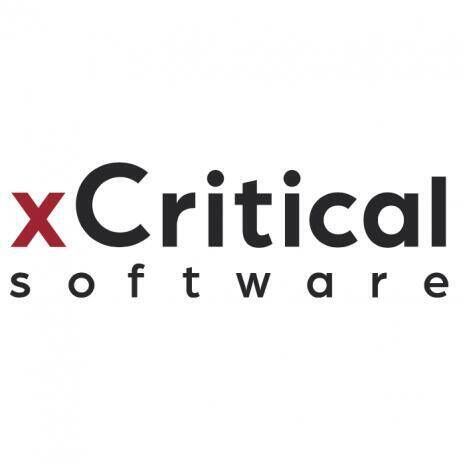
Additionally, GitHub’s issue tracker is more user-friendly and integrates with other popular applications, such as Trello and Asana. Github had more than 28 million users and hosts about 57 million repositories. Recently, Microsoft has acquired Github for a price of 7.5 Billion dollars. The acquisition has stirred up controversy in the open source community. A lot of people are worried that Github will lose its open source roots so many are looking at alternatives like Gitlab. Because Git has grown to be so big in the SDLC world, a staggering amount of 3rd party software tools and services including IDEs integrate seamlessly with it.
- It currently has 30 million users and its long-term goal is to become the default choice for
DevSecOps value stream platforms in the enterprise market. - Marketing reporting lets marketing teams use data to make better decisions, focus on the right initiatives, and get more results.
- It relies heavily on pull requests to manage code changes and reviews.
- The most significant difference between GitHub and GitLab for code creation and versioning is the Integrated Development Environment (IDE).
- It gives managers access to project management and code integrity controls.
- GitLab presents a built-in solution for deployment, utilizing Kubernetes or K8s to automate this process.
Users can submit pull requests for others to review and discuss changes before they are merged into the main branch. This helps to ensure that code is of a high quality and avoids any potential issues. GitHub and GitLab are two of the most popular code repositories developers use worldwide.
GitHub Enterprise
GitLab’s offerings are a bit more extensive in this respect, but GitHub’s are broadly comparable. Although GitHub is currently the most popular platform for developers, it’s not really accurate to say that GitHub offers any more or less support for developers than GitLab does. The pricing for GitLab and GitHub is hard to compare directly because the pricing structures are somewhat different.
Your choice of plan can completely change your experience with GitHub in this regard. However, there are limits on how much data you can store each month under the free plans, and how many minutes you can execute CI/CD pipelines. Currently, GitLab offers more storage but less CI/CD time under its paid plan. The most significant difference between GitHub and GitLab for code creation and versioning is the Integrated Development Environment (IDE). An IDE is essentially an editor-like app that simplifies the process of making changes to your projects. Aside from having all the features in the free and Teams plans, this plan gives you 50,000 CI/CD minutes per month.
The HubSpot CRM Platform
GitLab and GitHub are two of the most popular version control systems available today. Both GitLab and GitHub provide a platform for developers to collaborate on projects, share code, and deploy software. GitLab is a web based repository, which in addition to the collaborative capabilities is focused on DevOps and CI/CD. GitLab boasts almost all features GitHub has, allows teams to collaborate on code, and provides project management tools. Like GitHub, GitLab utilizes the Git version control system and provides a web-based interface for managing repositories.

For example, Codespaces offers a cloud-based development environment. Github also provides a service called Github Pages, for hosting static website files. GitLab Flow is based on the idea of feature branches and merge requests.
⚡ Integrations
You will also have to manually configure pipelines on GitHub because they don’t come pre-configured. Sometimes it is hard to choice between technologies, programs and of course repositories. I will https://traderoom.info/technical-analysis-vs-fundamental-analysis/ compare features of two similar repositories GitLab and GitHub in this article. GitLab CI – GitLab CI lets you automate the testing of your code using a variety of different testing tools.
What is difference between GitLab and GitHub?
The major difference between GitHub and GitLab is the platform each philosophy presents. GitHub has higher availability and is more focused on infrastructure performance, while GitLab is more focused on offering a features-based system with a centralized, integrated platform for web developers.
In this blog, you will learn the similarities and differences between the three popular Git hosting platforms and will also figure out which one suits you the best. In a highly competitive environment of developing software, repository management services have become vital to the success of software projects. GitLab and GitHub make it easy to manage changes within the software development lifecycle while fostering a collaborative environment that allows developers to share information and knowledge. Ultimately, both GitHub and GitLab have their sight set on DevOps. It’s what we call a “version control system.” Essentially, it’s a flexible way to let teams of developers work on the same source code without affecting other aspects of the project.
👨🏽🤝👨🏼 Community
Both services offer unlimited private repositories and free private repos to open source contributors, but there are differences between them regarding other features. GitLab is the world’s most popular Git repository hosting service, with over 2 million users and a vibrant community of open source developers. GitLab was founded in Oct 2011 by Dmitriy Zaporozhets, Artem Tkachenko, and Sveta Smirnova.
GlobalOnline Collaboration Tools Market Size and Forecast Time … – Reedley Exponent
GlobalOnline Collaboration Tools Market Size and Forecast Time ….
Posted: Fri, 16 Jun 2023 18:42:52 GMT [source]
Similar to Github, Gitlab is a git based repository hosting platform. From the beginning, Gitlab wanted to distinguish itself from Github, so it created a single product for the entire DevOps lifecycle. In Gitlab, tools like Issue trackers, continuous integration and continuous delivery are part of the product. GitLab is a big advocate of lean and agile project management, from simple issue tracking to complex DevOps lifecycles. Additionally, it enables developers to maintain traceability across the DevOps pipeline with its powerful and flexible issue tracker that scales easily from small teams to large organizations.
What is difference between GitHub and Git?
Although the two are closely related, Git is open source software maintained by Linux, while Microsoft owns GitHub. Git is an open-source platform – free to use, modify, and distribute. Contrastingly, GitHub follows a specific pricing model. It offers a free plan with all the core GitHub features for individuals.
